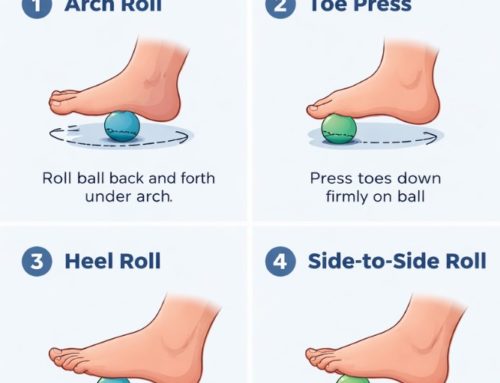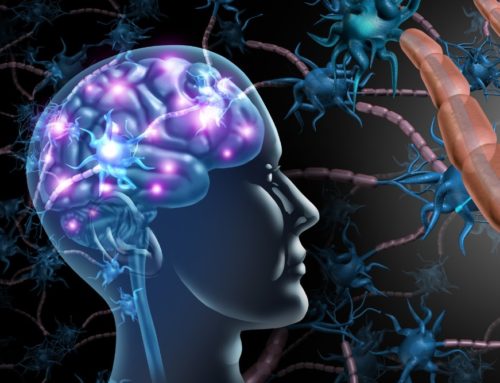4 Most Common Neurological Disorders Affecting Speech
Neurological disorders alter brain functions, affecting speech and other cognitive abilities. The symptoms vary, depending on the location and extent of the damage. You may experience changes in pitch, rhythm, word usage, volume, and other issues. These problems are frustrating since those affected frequently maintain their intelligence while losing their ability to communicate clearly.
Though curing neurological diseases is rarely possible, rehabilitation therapies aid in symptom management. Those with communication difficulties often benefit from speech therapy to improve speaking, reading, and writing skills. Physical therapy increases mobility while occupational therapy restores everyday skills. For more information on the neurological conditions that commonly alter speech, keep reading.

Neurological Disorders That Affect Speech
Several neurological conditions cause speech problems. For instance, myasthenia gravis causes hoarseness, pitch control issues, slurring, monotone, and jaw weakness. Those with Huntington’s disease exhibit altered speech rates and rhythms, pitch fluctuations and breaks, and a strained vocal quality.
Symptoms of amyotrophic lateral sclerosis (ALS) included a weakened voice, slurring, a nasal quality, and altered range and volume. Despite the seriousness of these conditions, four other disorders are more commonly associated with speech issues.
1. Stroke
Strokes affect speech more than any other neurological disorder, causing issues in a third of survivors. However, communication skills are controlled by several brain areas. Depending on the location and severity of the damage, you may experience some or all of the following issues.
Aphasia interferes with spoken communication, reading, and writing. Apraxia alters how the muscles in the jaw form words. Dysarthria causes slurring due to jaw muscle weakness or paralysis. Dysphonia affects the muscles surrounding the vocal cords, altering sound and volume.
2. Parkinson’s disease
Another neurological disorder affecting speech is Parkinson’s disease. The condition causes cell weakness and eventual death in some brain areas. Though tremors, loss of mobility, and movement issues are the most common symptoms, communication is also frequently affected.
Some symptoms include speaking softly, monotone speech, or pauses before communicating. Some people may speak too quickly. Muscle rigidity and loss of motor control often cause slurring. Cognitive issues may also alter language skills in the late stages of Parkinson’s.
3. Multiple sclerosis (MS)
According to experts, 25-40% of those with multiple sclerosis experience difficulty with communication. This neurological condition affects speech by altering the brain’s ability to send messages to other areas. Such disruptions include your ability to speak clearly and understand others.
Coordination issues in the lower facial muscles cause slurring, while diaphragm weakness affects volume control. Altered speech patterns, including lengthy pauses between words, are also frequently experienced. Other symptoms may include nasal, strained, hoarse, or breathy speech.
4. Brain injury or tumor
Though a brain injury itself is not a disorder, it can lead to neurological disorders. Brain injuries may occur during falls, car accidents, or sports. Depending on the injury’s location, you may develop cognitive issues, including speech difficulties. Such damage often affects cognitive communication skills, leading to trouble finding the right word, rambling, or difficulty expressing yourself.
Experts also state that the location of a brain tumor may also alter speech and language. Symptoms may include slurring, improper pronunciation, or trouble vocalizing your thoughts. Expressing yourself becomes difficult since you can’t always remember the word you want to use.
Resources:
- The Voice Foundation, Myasthenia Gravis (MG)
https://voicefoundation.org/health-science/voice-disorders/voice-disorders/voice-dysfunction-in-neurological-disorders/myasthenia-gravis-mg/ - PMC, Jn. 1, 2022, Understanding speech and swallowing difficulties in individuals with Huntington disease
https://pmc.ncbi.nlm.nih.gov/articles/PMC7854808/ - Target ALS, How ALS Affects Speech
https://www.targetals.org/2022/03/28/how-als-affects-speech/ - UCSF, Speech and Language
https://memory.ucsf.edu/brain-health/speech-language - Stroke Foundation, Communication after stroke
https://strokefoundation.org.au/what-we-do/for-survivors-and-carers/after-stroke-factsheets/communication-after-stroke-fact-sheet - NINDS, What is Parkinson’s disease
https://www.ninds.nih.gov/health-information/disorders/parkinsons-disease - National Multiple Sclerosis Society, Speech Dysfunction
https://www.nationalmssociety.org/understanding-ms/what-is-ms/ms-symptoms/speech-problems - MSKTC, Cognitive Problems after Traumatic Brain Injury
https://msktc.org/tbi/factsheets/cognitive-problems-after-traumatic-brain-injury - National Brain Tumor Society, May 26, 2023, How to Help Patients with Brain Tumors Navigate Speech and Language Challenges
https://braintumor.org/news/how-to-help-patients-with-brain-tumors-navigate-speech-and-language-challenges/
This article contains informational and educational materials and does not replace health or medical advice. For questions or concerns regarding your medical condition or health objectives, speak to a qualified physician or healthcare provider.






Leave A Comment